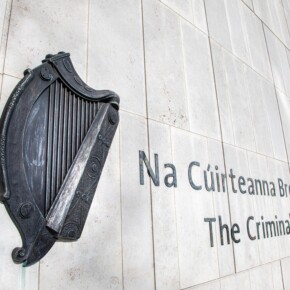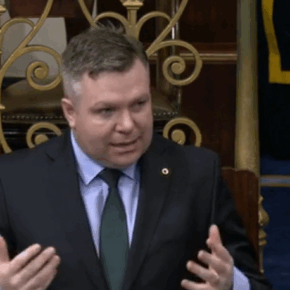Threshold calls for more rights for “invisible” renters
Dublin People 30 Sep 2025
National housing charity Threshold has today launched its new report Renting at The Frontier: Protecting the Rights of Licensees in Ireland, authored by Dr. Valesca Lima, at Dublin City Council’s Wood Quay, funded by IHREC.
The report aims to shed light on a significant yet overlooked group of renters in Ireland – those classified as ‘licensees.’ These individuals, who often find themselves in informal rental arrangements, are not protected by the Residential Tenancies Acts, have little to no rights and often no recourse to the Residential Tenancies Board (RTB). As a consequence, they are largely absent from policymaking and legal protection. With 2022 Census data indicating that there could be nearly 50,000 households in such informal licensee agreements, Threshold has undertaken this research to document their often-invisible experiences.
Licensees include a diverse range of living situations beyond the commonly understood categories of ‘digs’ or ‘lodgers.’ Unlike a tenant protected under the Residential Tenancies Acts, a licensee does not possess the same degree of exclusive possession over the premises they occupy. For example, they may be sub-letting from another tenant, living in housing provided by their employer, caravans, or retirement villages. This new research has found that many of these arrangements are based on verbal agreements. Licensees are left vulnerable to sudden evictions, poor standards of upkeep of accommodation and a lack of recourse when issues arise.
While often associated with student living, this form of accommodation spans a much broader demographic seeking affordable housing; including low-income workers and migrants.
Threshold notes that many of the research participants only discovered their licensee status when there was an issue with their arrangement, contacting Threshold only to find out that they have little to no rights. In other scenarios, there are some renters who believe they are licensees but are, in fact, tenants protected by the Residential Tenancies Acts who have been provided with licence agreements by their landlord to sidestep their obligations under the Act. Threshold’s new research reveals the urgent need for policy change, legal protections and increased public awareness surrounding these informal arrangements.
Commenting on the report, Threshold’s National Advocacy Manager Ann-Marie O’Reilly, said:
“Our research highlights the urgent need for clearer regulations that safeguard licensees struggling with what is in essence legal non-existence. There are limited grounds on which a licensee can challenge a sudden eviction or a rent increase, for example. Threshold is there to assist licensees in whatever way possible to navigate these types of problems, and more, when they arise.
“While specific licensee issues are not new, their significance is increasing due to what appears to be more evidence of informal rental arrangements. This highlights the need for legislative reform and expanded legal protections for licensees within the private rental sector.
“We encourage anyone who is unsure of their rental situation, or ahead of signing an agreement which may be a licence, to get in touch with Threshold for advice.”
Author of the report and Assistant Professor at DCU, Dr Valesca Lima, said:
“The aim of this report is to identify, analyse, understand and propose solutions for the distinct challenges faced by residential licensees. This new research provides an empirical grounding for reform, offering policymakers concrete evidence of the harms caused by unregulated licensing and the need to strengthen protections for this category of renters.
“This report benefitted greatly from collaboration with Threshold’s research and policy team, and I want to thank the Threshold advisors around the country who generously shared their expertise, time and profound understanding of the challenges faced by renters.”
Barrister and Threshold Board Member, Tricia Sheehy-Skeffington, said:
“This report shows that the ‘licensee’ label captures a wide variety of rental situations, yet the majority fall outside the protections of the Residential Tenancies Acts. While one size may not fit all, this cannot justify the absence of any regulatory safeguards.”
On foot of the new research and 47 years of experience in supporting licensees contacting their services, Threshold is proposing a set of recommendations aimed at improving the situation for licensees, including to:
- Expand the Residential Tenancies Acts definition of ‘landlord’ to include anyone exercising landlord-like functions (such as rent collection, rule enforcement, or maintenance decisions), excluding owner-occupiers renting out rooms in their own homes
- Provide clear identifying characteristics to aid RTB decision-makers in distinguishing between tenancy and licensee arrangements
- Ensure that any occupant enjoying exclusive possession of residential premises is treated as a tenant, unless proven otherwise
- Establish a presumption of tenancy for sub-tenants who have resided in a property for at least six months without objection from the landlord
- Mandate RTB-style deposit dispute resolution and minimum notice periods for all residential licenses. If a licence agreement is taking place in a principal private residence (Rent-a-Room scheme), a ‘reasonable’ period of notice should apply
- Establish a central residential licence registry to support better oversight, policymaking and enforcement
- Enforce minimum standards in licence arrangements, covering safety, hygiene, heating and maintenance (excluding Rent-a-Room in an owner’s principal residence, which require separate consideration)
- Create an RTB one-stop information hub for licensees, including access to specialist advisors and seamless referrals to support services like Threshold
- Create an official template agreement by the RTB for license arrangements
- Scale the annual Rent-a-Room €14,000 tax-exemption ceiling in proportion to the actual days a room is let, rather than a flat year-long amount
- Link Rent-a-Room tax relief to high quality standards
Threshold’s service is available by phone, Monday to Friday, 9am-9pm at 1800 454 454, or online at www.threshold.ie/get-help to any private renter in need of advice and support.











